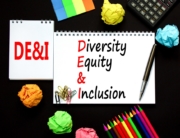Each generation — whether it be traditionalists, baby boomers, Gen X or millennials — brings its own quirks and outlook when it comes to work. Each comes with different sets of experiences and views on the world. The newest generation entering the workforce — Gen Z — is no exception. Pew Research defines Gen Z as those born after 1996.
Right now, employers are taking a close look at Gen Z in order to learn the best ways to recruit and engage them. And they do bring exacting expectations of potential employers and their careers.
Expectations
For example, a report by Washington State University’s Carson College of Business found that top of mind for Gen Z workers are:
- 83% want to make a positive impact on the world
- 79% have a high ambition and drive
- 75% seek a healthy work-life balance
- 70% want to work for a company whose values along with their own
- 63% expect to move up the ranks quickly
The poll included 150 members of Gen Z in the Pacific Northwest.
The Society of Human Resource Management recently released a story listing 10 ways to attract Gen Z employees, ranging from flexibility and peer coaching to work/life balance and social awareness. LinkedIn listed six Gen Z traits employers need to know when attracting and hiring the; some examples include that Gen Z is competitive and focused on authenticity.
Career Growth
Professional staffing firm Kforce Inc. has been researching Gen Z as well. One of its findings: 61% of Gen Z cite career growth as a key factor when considering a job offer.
They want a variety of experience, says Jessica Schwaller, senior director of associate performance and development at Kforce.
Gen Z workers look for organizations that can deliver that variety. Companies that can provide courses, programs, projects to meet Gen Z’s needs will have an edge. And it’s important to note members of Gen Z will specifically look for opportunities for career growth while researching a company. They may start out looking at job descriptions on career websites, but they continue researching — looking for content or examples of what a company provides in the way of things such as mentoring and on-demand learning.
“They are going to check out tenure, believe it or not,” Schwaller says “They are also going to look for visible progression in that tenure.” But in terms of tenure, they are looking for variety in that stability. That’s in contrast to millennials, who were more open to job hopping to figure out what was right for them.
Casey Birdsall, a talent representative handling recruitment of tech professionals who joined Kforce out of college last October, said she met with members of her team who were able to share how they got where they are. That gave her an idea of what to expect in terms of growth.
Other things that members of Gen Z look for in roles include the ability to both send and receive feedback as well as diversity, equity and inclusion.
In fact, creating a culture of continual feedback and acknowledgement was cited as one way employers can harness the potential of Gen Z in the “Groundbreakers: Gen Z and the future of accountancy” report released by the Association of Chartered Certified Accountants and the International Federation of Accountants.
The report focused on accounting, but suggests organizations looking to work with Gen Z included indicate what they stand for, their purpose and their wider impact on society, because members of Gen Z are keen to understand how the organization makes a difference. Also, it said Gen Z values authenticity.
“This 18 to 25-year-old age group of Gen Z is smart, connected, ambitious yet realistic — but they have concerns about the future and how business operates,” Helen Brand, chief executive of the Association of Chartered Certified Accountants, said in a statement when the report was released.
Diversity and inclusion are also key, a point driven home Yale University senior Kahlil Greene in an open letter to future employers published in the Harvard Business Review.
Near Home?
Gen Z is coming into the workforce at an unusual time amid the Covid-19 pandemic. Companies have shifted to work from home with a slow return to the office given the Delta variant.
However, a new term is emerging. Instead of WFH for work from home, it’s WNH for “work near home.” It refers to working in a third space other than office or home such as at a café, hotel lobby or restaurant.
A survey of more than 1,000 US-based Gen Z employees by workspace tech company Kettle found that 67% of Gen Z employees are interested in work-near-home options.
“It’s clear that people don’t want to be at home every day, nor do they want to be in the office every day,” Kettle co-founder and CEO Nick Iovacchini said when the report was released on Aug. 6. “Companies that succeed in finding new equilibriums that balance on-site, off-site work and safety concerns will ultimately create advantages when competing for talent.”
Benefits of WNH include less stress, cited by 28% of respondents, and flexibility, cited by 25%.
The pandemic impacted workers of all generations, of course, but Gen Z is the one just starting out in the workplace. That also means the generation has yet to leave its mark, but it will. Their experience and outlook will play a part. Right now, everybody is still learning about Gen Z, and how the generation will impact the workforce.







